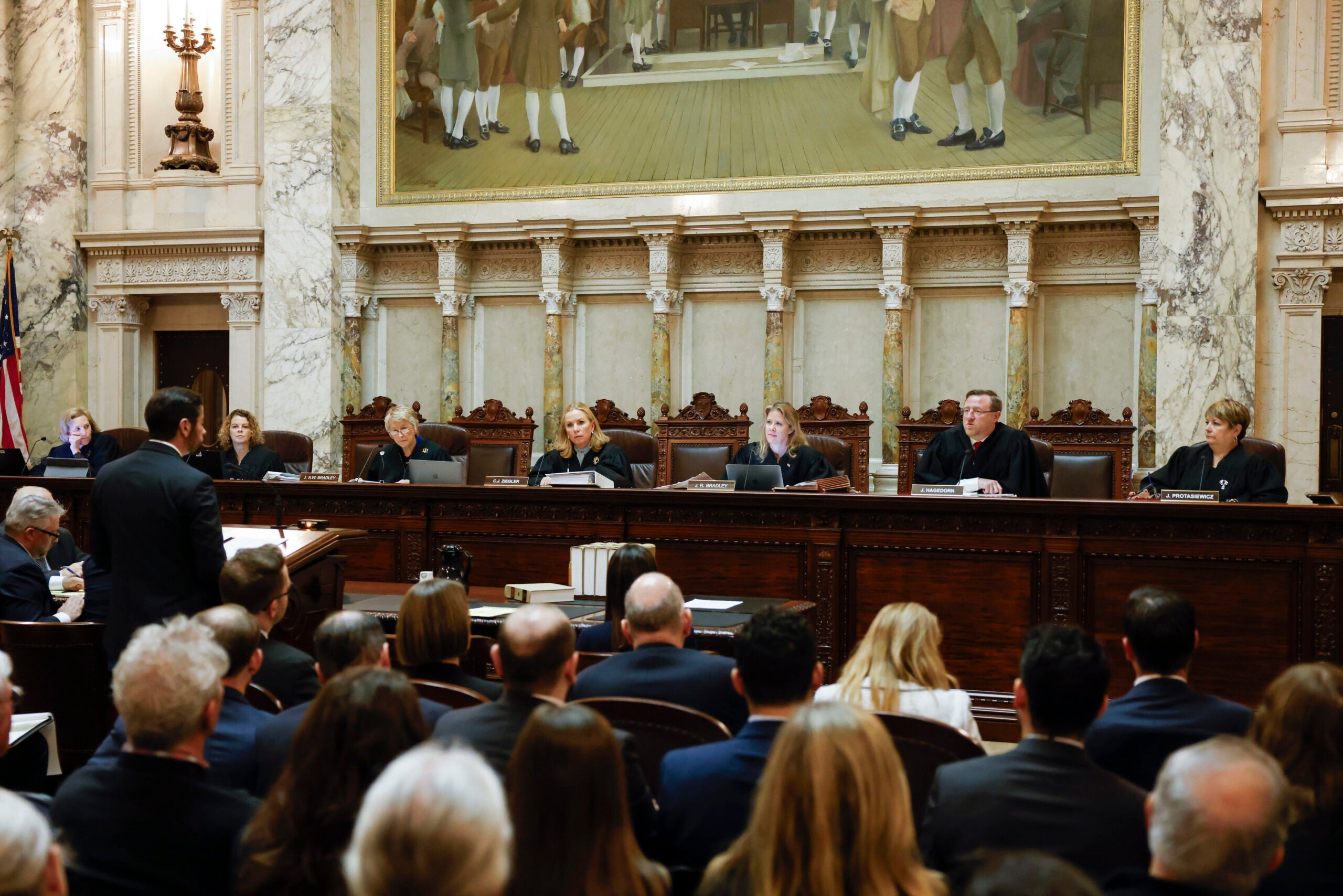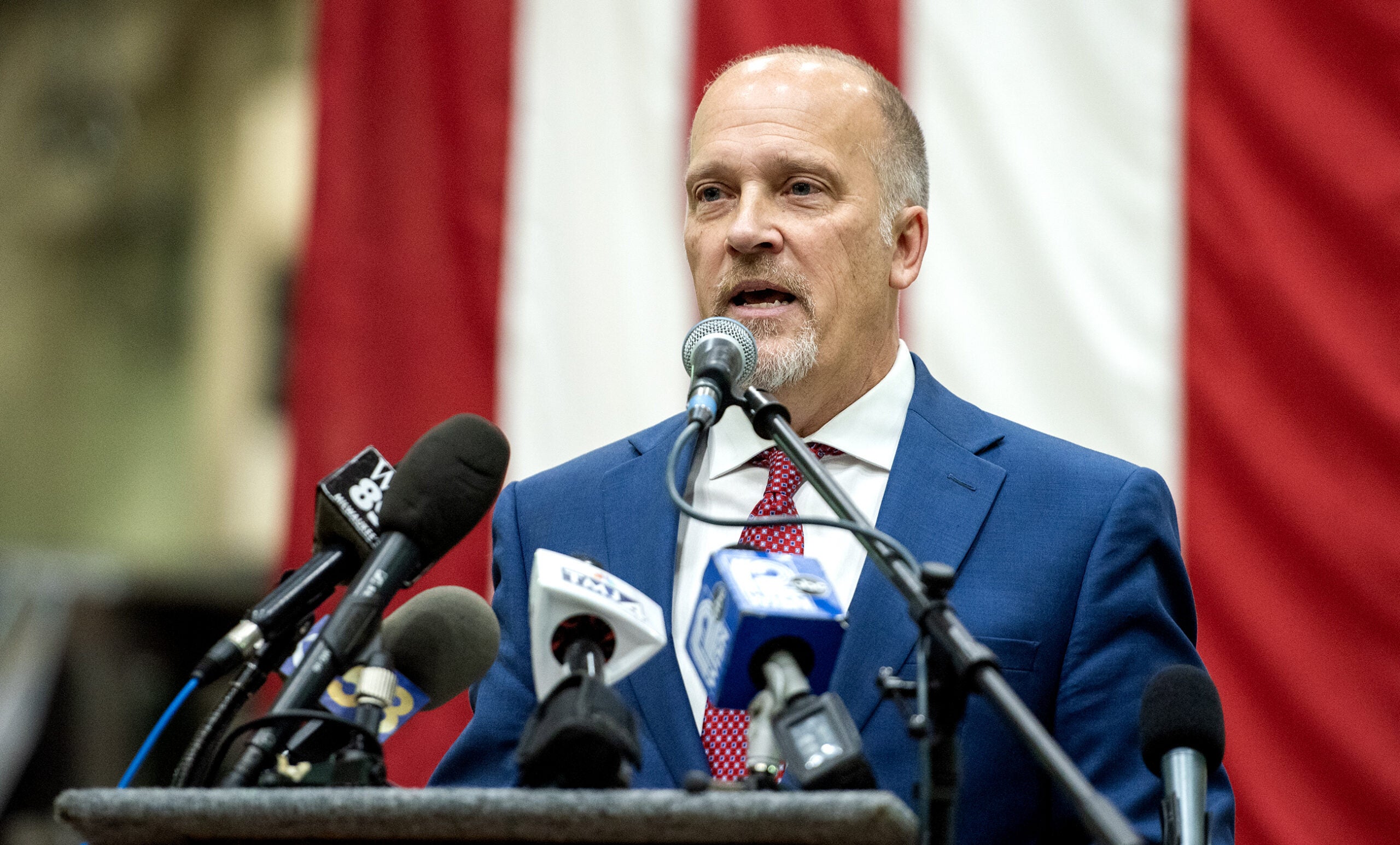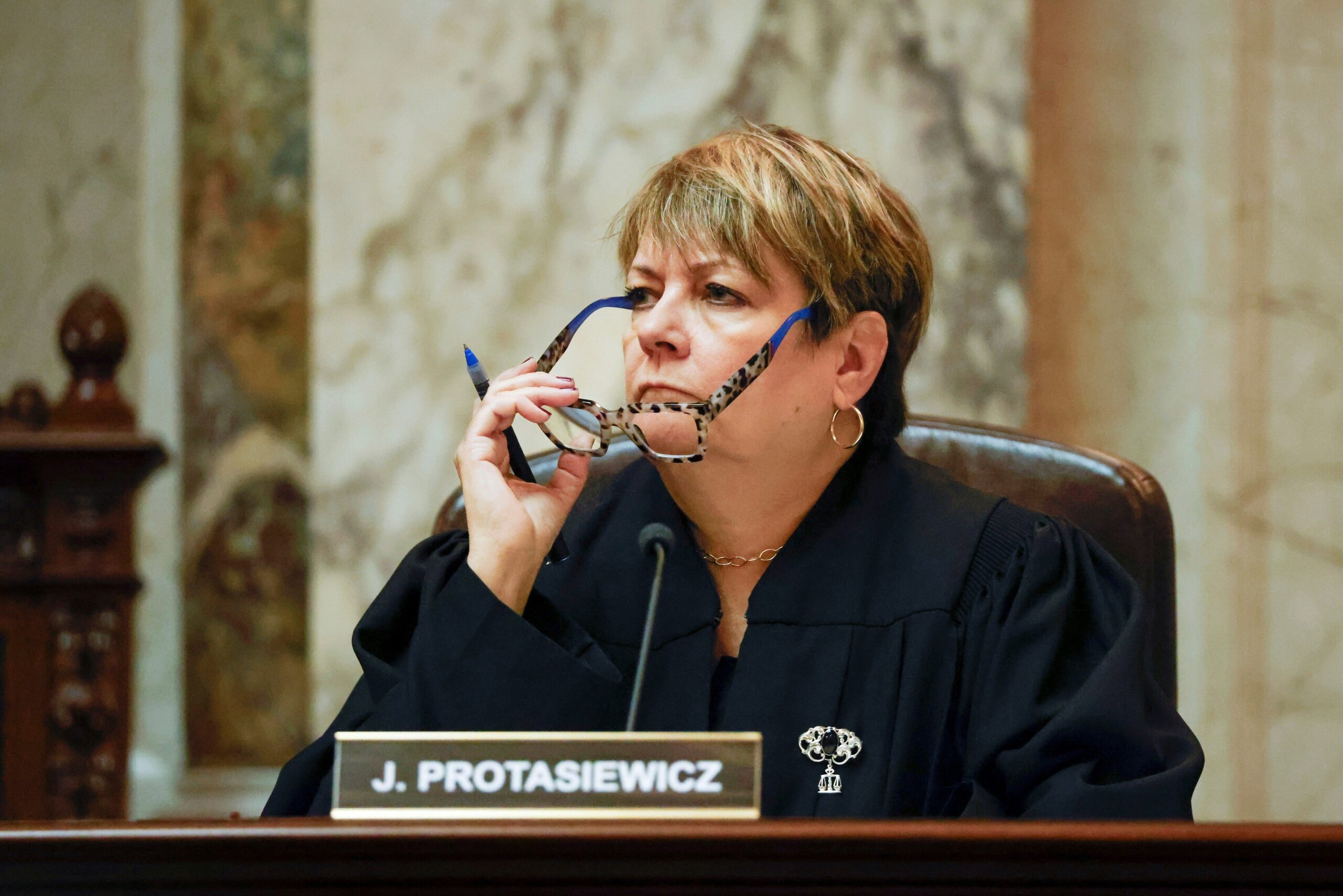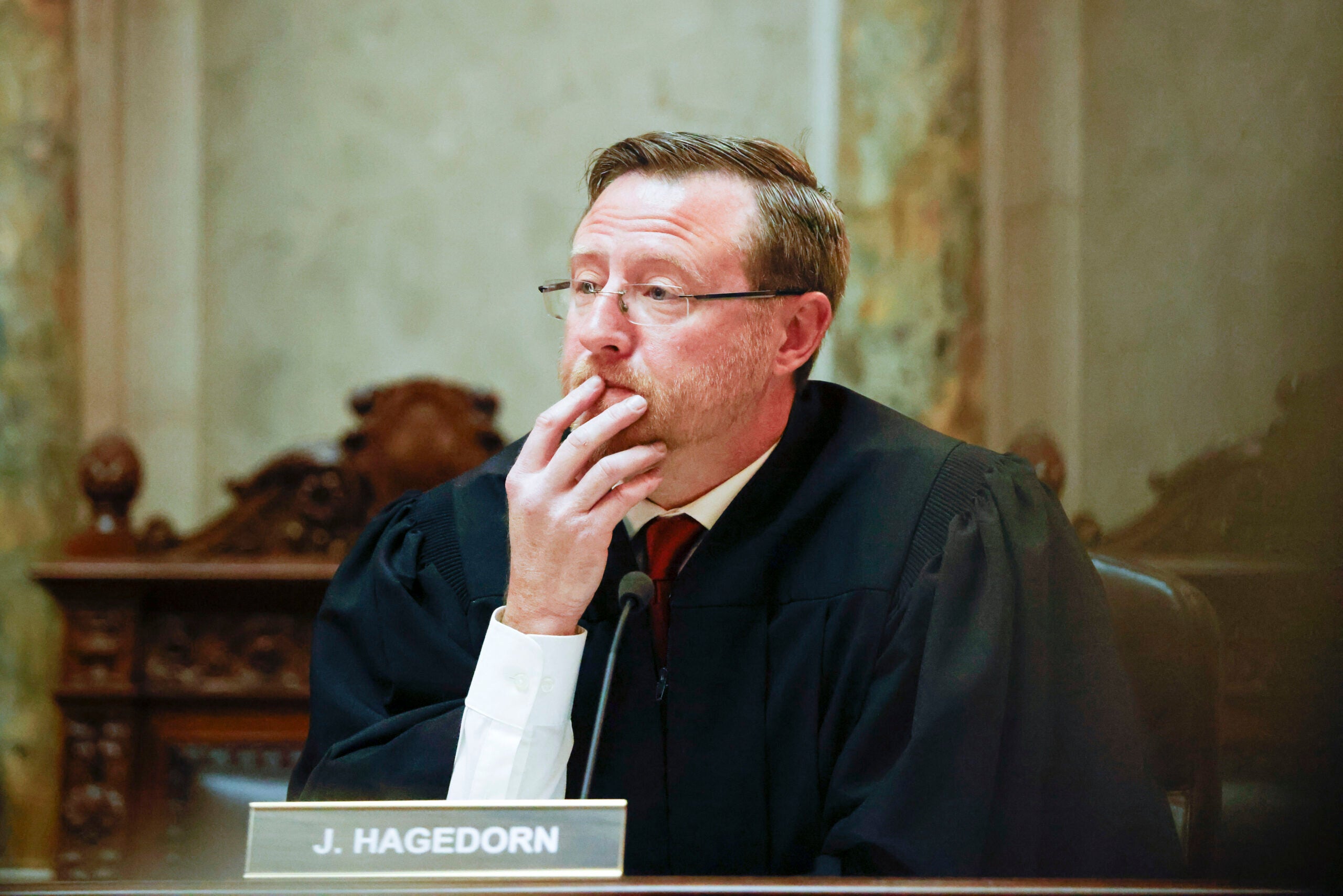Guardianship records for people deemed incompetent to vote will not be released to a conservative activist who worked on a widely criticized review of the 2020 election, the Wisconsin Supreme Court ruled Friday.
However, because the state Supreme Court didn’t rule on the merits of the lawsuit filed by the Wisconsin Voter Alliance, the legal battle for the records may not be over.
The Wisconsin Voter Alliance was founded by Ron Heuer, who was part of former Wisconsin Supreme Court Justice Michael Gableman’s 2020 election review. That investigation, which was authorized and funded by Republicans in the Wisconsin Assembly, resulted in a suggestion by Gableman that lawmakers should consider decertifying President Joe Biden’s victory.
The group filed a lawsuit against Walworth County in 2022 demanding access to Notice of Voting Eligibility Forms created during incompetency proceedings. It filed 12 other lawsuits seeking the same records from other parts of the state.
On Friday, the Supreme Court’s four liberal justices were joined by conservative Justice Brian Hagedorn in rejecting the Wisconsin Voter Alliance’s case, but they didn’t rule on the merits of the group’s arguments. Instead, Hagedorn and the court’s liberals focused on conflicting rulings from state appeals courts in Waukesha and Madison.
Stay informed on the latest news
Sign up for WPR’s email newsletter.
In short, the District IV Court of Appeals in Madison rejected the Wisconsin Voter Alliance’s lawsuit, while the District II Court of Appeals in Waukesha overturned that decision and ruled in the group’s favor.
The majority Supreme Court opinion, written by liberal Justice Janet Protasiewicz, said because a unanimous District IV decision came first, the District II court “was bound by” the earlier ruling.
“When the court of appeals disagrees with a prior published court of appeals opinion, it has two and only two options,” Protasiewicz said.
She said those options are either explain to the Supreme Court why it believes a fellow appeals court erred or decide the case while “adhering to the prior opinion, and explain why it believes the prior opinion is wrong.”
Protasiewicz said if the Supreme Court didn’t reject the Waukesha appeals court’s decision to overrule its counterpart in Madison, “litigants would feel encouraged to litigate issues ‘multiple times in the four districts.’”
“Why not?” Protasiewicz wrote. “Like the Alliance, if they lose in one district they might win in another.”
The state’s high court reversed the ruling from Waukesha and sent the case back to the Wisconsin Court of Appeals.
A dissent written by conservative Wisconsin Supreme Court Justice Rebecca Bradley and joined by Chief Justice Annette Ziegler argued the court should have weighed in on the merits of the case and “resolve weighty matters of privacy, open access to public information and election integrity.”
Attorneys for Walworth County and the Wisconsin Voter Alliance did not respond to requests for comment on the Supreme Court’s ruling.
The Wisconsin Voters Alliance is no stranger to the state’s judicial system. In 2020, it filed a lawsuit seeking to overturn Biden’s victory. Hagedorn wrote the majority opinion rejecting that lawsuit, calling it “the most dramatic invocation of judicial power I have ever seen.”
Wisconsin Public Radio, © Copyright 2025, Board of Regents of the University of Wisconsin System and Wisconsin Educational Communications Board.







